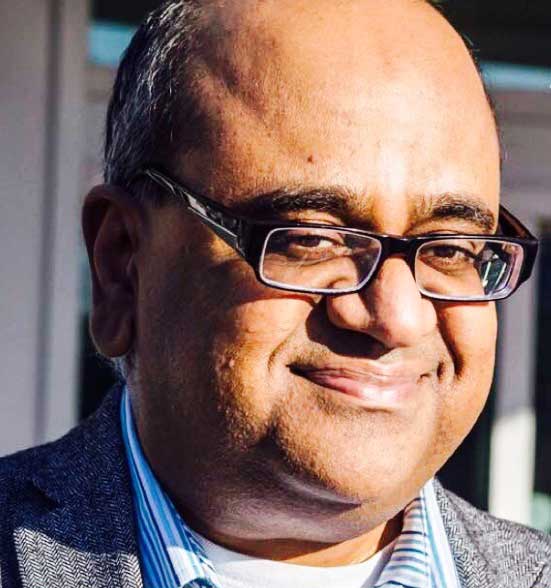
The purpose of this article is to enlighten GPs and patients about the evidence-based benefits of spirituality on mental health.
What is spirituality?
There is no one definition, but in general, spirituality:
- Is something everyone can experience
- Helps us to find meaning and purpose in the things we value
- Can bring hope and healing in times of suffering and loss
- Encourages us to seek the best relationship with ourselves, others and what lies beyond
These experiences are part of being human – they are just as important to people with intellectual disability or other conditions, such as dementia and head injury, as they are to anybody else. Spirituality often becomes more important in times of emotional stress, physical and mental illness, loss, bereavement and the approach of death.
Healthcare generally aims to relieve pain and cure, but good healthcare tries to do more. Spirituality emphasises the healing of the person, not just the disease. It views life as a journey, where good and bad experiences can help you to learn, develop and mature.
How is spirituality different from religion?
Religious traditions certainly include individual spirituality, which is universal. But each religion has its own distinct community-based worship, beliefs, sacred texts and traditions. Spirituality is not necessarily tied to any particular religious belief or tradition. Although culture and beliefs can play a part in spirituality, every person has their own unique experience of spirituality. It can be a personal experience for anyone, with or without a religious belief. Spirituality also highlights how connected we are to other people and the world.
What is spiritual healthcare?
People with mental health problems have said that they want:
- To feel safe and secure
- To be treated with dignity and respect
- To feel that they belong, are valued and trusted
- Time to express feelings to mental health carers
- Meaningful activity such as creative art, work or enjoying nature
- The chance to make sense of their life – including illness and loss
Spiritual healthcare aims to meet these types of needs.
What difference can spirituality make?
Patients say that through spirituality they gained:
- Better self-control, self-esteem and confidence
- Faster and easier recovery (often through healthy grieving of losses and through recognising their strengths)
- Better relationships – with self, others and with creation/nature
- A new sense of meaning, hope and peace of mind. This has enabled them to accept and live with continuing problems or to make changes where possible.
What are spiritual practices?
These span a wide range and include the following:
- Spending time enjoying nature
- Acts of compassion (including work, especially teamwork)
- Spending time in meditation/deep reflection
- Following traditions of yoga, Tai Chi and similar disciplined practices
- Listening to singing and/or playing sacred music, including songs
- Joining team sports or other activities that involve co-operation and trust
- Spending time in contemplative reading (of literature, poetry etc.)
- Appreciating the arts
- Being creative – painting, sculpture, cookery, gardening etc.
- Making and keeping good family relationships
- Making and keeping friendships, especially those with trust and intimacy
Which are spiritually-informed therapies?
Over recent years there has been increasing interest in treatments that include the spiritual dimension. In addition to established 12-step programmes for alcohol and substance misuse, new approaches such as mindfulness-based cognitive therapy for the treatment of stress, anxiety and depression (MBCT), compassion-focused therapy and forgiveness therapy are now being actively researched and supported.
What are spiritual values and skills?
Spiritual practices can help us to develop the better parts of ourselves. They can help us to become more creative, patient, persistent, honest, kind, compassionate, wise, calm, hopeful and joyful. These are all part of the best healthcare.
Spiritual skills include:
- Being honest – and able to see yourself as others see you
- Being able to stay focused in the present, to be alert, unhurried and attentive
- Being able to rest, relax and create a still, peaceful state of mind
- Developing a deeper sense of empathy for others
- Finding the capacity for forgiveness
- Being able to be with someone who is suffering, while still being hopeful
- Learning better judgement, for example about when to speak or act, and when to remain silent or do nothing
- Learning how to give without feeling drained
- Being able to grieve and let go
Spirituality emphasises our connections to other people and the world, which creates the idea of ‘reciprocity’. This means that the giver and receiver both experience benefits; that if you help another person, you help yourself. Many carers naturally develop spiritual skills and values over time as a result of their commitment to those for whom they care. Those being cared for, in turn, can often give help to others in distress.
How do you start?
Spirituality is deeply personal. Try to discover what works best for you. A three-part daily routine can be helpful:
- A regular quiet time (for reflection or meditation)
- Study of spiritual material
- Making supportive friendships with others with similar spiritual aims and aspirations
Summary:
Spirituality can play an important role in helping people maintain good mental health and live with, or recover from, mental health problems. There is evidence that people who hold spiritual beliefs have better mental health. So, the relevance of spirituality is now being recognised in courses for mental health care students and practitioners.
This article is for information only and should not be used for the diagnosis or treatment of medical conditions. myHealthSpecialist makes no representations as to the accuracy or completeness of any of the information in this article, or found by following any link from this article. Please consult a doctor or other healthcare professional for medical advice.

Dr Adil Jawad MBBS; DPM; MRCPsych
Consultant Psychiatrist@Psychiatry-UK/Clinical Lead NW Sussex/Trust Lead – Spirituality Group for Staff well-being in Sussex Partnership NHS Trust